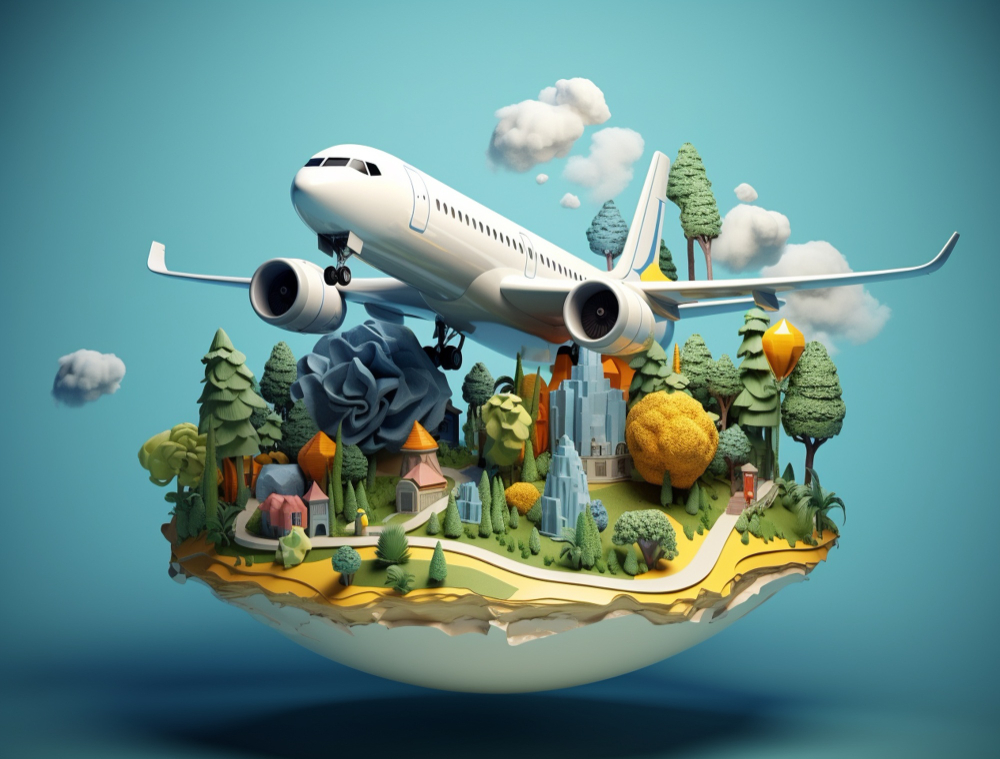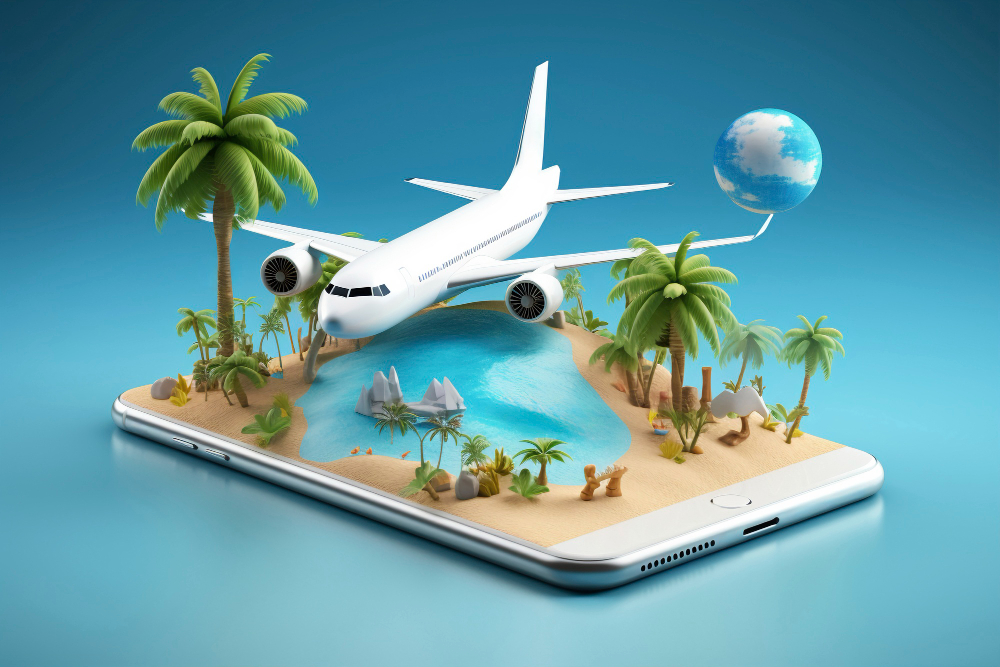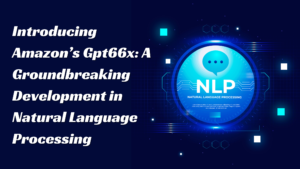The Future of Travel: How AI is Transforming Itineraries and Experiences
In the travel landscape, a transformative force is at work: Artificial Intelligence (AI). No longer confined to the realms of science fiction, AI is reshaping how we plan our journeys and experience the world. Say goodbye to generic itineraries and one-size-fits-all travel packages. With AI leading the charge, travellers now revel in personalized recommendations, seamless booking processes, and immersive experiences tailored to their preferences. In this article, we’ll dive into the transformative power of AI in travel, exploring how it revolutionizes itineraries, enhances experiences, impacts transportation, promotes sustainability, and presents both challenges and exciting possibilities for the future of AI for travel.
How AI is Transforming Itineraries and Experiences

AI-Powered Itinerary Planning
Gone are the days of spending hours scouring travel guides and websites to plan the perfect itinerary. AI is revolutionizing itinerary planning by providing personalized recommendations tailored to individual preferences. By analyzing vast data, AI algorithms can suggest destinations, activities, and accommodations that align with travellers’ interests and budget constraints. Moreover, AI enables dynamic itinerary adjustments, allowing travellers to adapt their plans on the fly based on real-time factors like weather conditions, traffic updates, and unexpected closures. This flexibility ensures a smoother and more enjoyable travel experience, free from the constraints of rigid schedules and unforeseen disruptions.
Enhancing Travel Experiences with AI
AI is transforming how we plan our trips and how we experience them. Virtual travel assistants powered by AI algorithms are becoming increasingly common, providing travellers with instant support and guidance. These virtual assistants can offer recommendations, answer questions, make reservations, and even provide real-time translations, enhancing communication in foreign destinations. Furthermore, advancements in augmented reality (AR) and virtual reality (VR) technologies are revolutionizing travel experiences by allowing travellers to virtually explore destinations, historical landmarks, and cultural attractions from the comfort of their homes. Whether walking through the streets of ancient Rome or swimming with dolphins in the Great Barrier Reef, AI-powered immersive experiences bring the world to travellers like never before.
AI’s Impact on Transportation
The impact of AI extends beyond itinerary planning and experience enhancement to revolutionize transportation systems. Intelligent transportation systems powered by AI algorithms optimize traffic flow, reduce congestion, and minimize travel times, making commuting more efficient and enjoyable. Predictive maintenance algorithms analyze sensor data from vehicles and infrastructure to identify potential issues before they occur, reducing downtime and enhancing safety. Moreover, AI-driven navigation apps provide real-time traffic updates, alternative routes, and personalized recommendations based on historical data and current conditions, ensuring smoother and more efficient journeys for travellers.
Sustainability and Efficiency in Travel
As the travel industry grapples with climate change and environmental degradation challenges, AI offers innovative solutions to promote sustainability and efficiency. Eco-friendly travel options powered by AI algorithms help travellers minimize their carbon footprint by suggesting sustainable transportation modes, eco-friendly accommodations, and low-impact activities. Furthermore, AI optimization algorithms analyze energy consumption, waste generation, and resource usage data to identify improvement opportunities and implement more sustainable practices. By harnessing the power of AI, the travel industry can reduce its environmental impact while simultaneously enhancing the travel experience for future generations.
Challenges and Concerns
While AI holds tremendous promise for the future of travel, it also presents several challenges and concerns that must be addressed. Data privacy and security are paramount concerns, as AI algorithms rely on vast amounts of personal data to provide personalized recommendations and services. Moreover, the growing dependence on AI technology raises questions about equity and accessibility, as not all travellers may have equal access to AI-powered services and resources. Additionally, regulatory and ethical dilemmas surrounding AI use in travel, such as bias in algorithms and AI-driven decision-making, require careful consideration to ensure fair and responsible implementation.
Future Possibilities and Innovations
Looking ahead, the future of AI in travel is brimming with possibilities and innovations. Advancements in AI technology, combined with emerging technologies like blockchain and the Internet of Things (IoT), promise to enhance the travel experience further and revolutionize the industry. From personalized travel companions to fully autonomous transportation systems, the potential societal impacts of AI-driven travel are vast and multifaceted. While uncertainties remain, one thing is clear: AI will continue to play a central role in shaping the future of travel for years to come.
Conclusion
The future of travel is bright with the promise of AI-driven innovation. From personalized itineraries and immersive experiences to sustainable transportation and efficiency optimization, AI is transforming every aspect of the travel industry. While challenges and concerns remain, the potential benefits of AI in travel are too significant to ignore. As we embark on this journey into the future, embracing responsible AI implementation is crucial, ensuring that AI enhances rather than detracts from the travel experience. With AI as our guide, the possibilities for the future of travel are limitless, inviting us to explore the world in ways we’ve never imagined before. Embracing AI for travel promises to revolutionize the way we explore and experience the world, shaping the future of travel for generations to come.

















